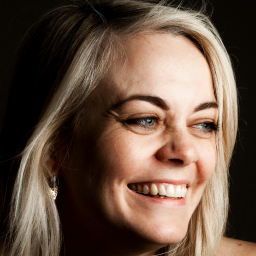In honour of International Day of Women and Girls in Science, we want to shine a light on our very own Senior Fermentation Scientist and self-proclaimed Mary Poppins of microbes, Sasha Atmadjaja.
Her role at Symprove is super important and involves studying and understanding our beloved Symprove bacteria. Encouraging them to grow healthy and strong, so they're ready to do all the good stuff when they reach your guts. Keep reading to find out what makes her tick... and it's mainly bacteria.
What made you want to be a fermentation scientist?
I have always been interested in bacteria. I found them fascinating and the things they can do are mind-boggling! Being a fermentation scientist allows me to peek into their world, learn what makes them tick, and if I’m lucky, borrow their powers to make our lives better.
Best thing about your job?
I love being a scientist working in an industry job (as opposed to academia). It really is the best of both worlds! I am still doing interesting research and discovery, but there is a sense of immediacy and focus which I find very fulfilling. ‘Science for science’s sake’ is not really my thing personally.
On the nerdier side, I just love working with bacteria and discovering their idiosyncrasies!
What’s your favourite bacteria?
E. coli! E. coli was my first love and it was the bacteria that made me fall in love with microbiology and fermentation in the first place. It started back in Indonesia when I was in high school. I was representing my school at a national science competition, and we had the chance to do microbiology experiments at one of the leading universities in Indonesia. One of the experiments involved molecular cloning, which means transferring a gene from one organism to another host. We transferred the green fluorescent gene from a jellyfish species to E. coli. When those blobs of E. coli started glowing under the UV light, I was absolutely mesmerised and decided that this is what I want to do for life!
E. coli often gets a bad rep because some variants of them are disease-causing. However, there are safe E. coli strains out there that have been the workhorse in biotechnology for decades now. They are also very well-studied which means a lot of advancement in biotechnology has been tested in E. coli first.
Can you give us a cool fact about bacteria?
Bacteria is one of the most abundant life-forms on Earth. There are approximately 1 billion times more bacteria on Earth than there are stars in the universe!
And why are bacteria so important?
Bacteria are so diverse in what they can do and what they can survive. We are conditioned to associate bacteria with disease and destruction, but it could not be further from the truth. There are actually a lot more beneficial bacteria than there are ‘bad’ ones. They are just not as well studied. Bacteria can help with a lot of the big problems we face today, from personal health to global food security to plastic pollution to climate change.
How can we encourage more women to pursue science?
I think to encourage more women (and frankly, underrepresented young people in general!) to pursue science, there are two important things to consider: representation and access to mentorship. A young person might get discouraged from pursuing a STEM career because they don’t know anybody in their circle who are STEM professionals, and therefore thinks this is not an option for them. If you have a young person in your life who you think would be interested in STEM (or even you yourself!), I highly recommend looking up STEM Ambassadors or Girl Geeks programme. They are both UK-based and they can connect you to their members and other volunteers who are working in STEM today.
Finally, can you share 3 reasons why we should care about bacteria
- They are everywhere (literally everywhere – even in places you’d think no life could thrive, like deep sea vents or sulphur pools!)
- They have a huge impact on our lives for better or worse.
- They have so much potential that have yet to be discovered/harnessed.
Thanks Sasha!



